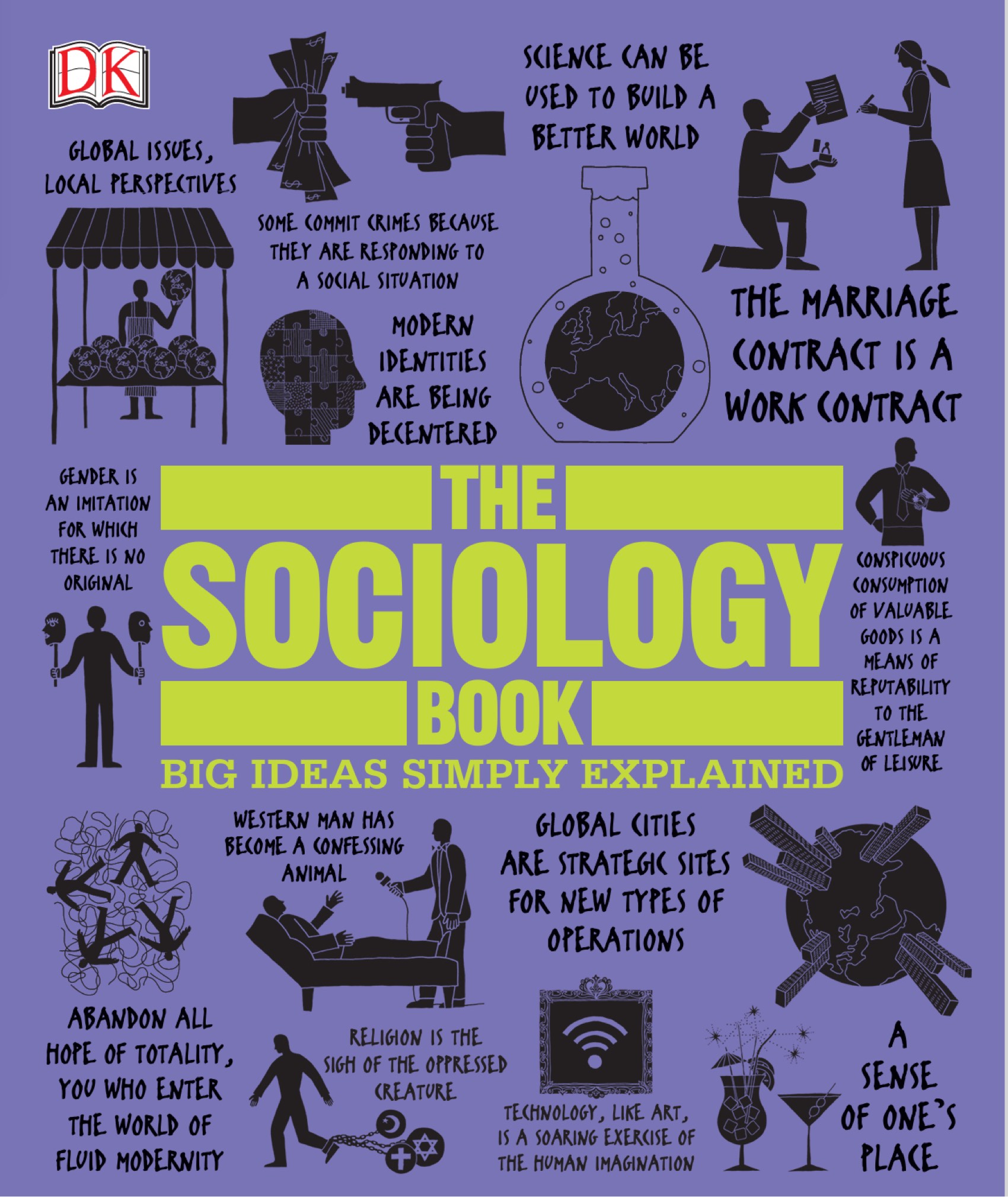DK THE SOCIOLOGY BOOK
The Sociology Book by DK is part of the Big Ideas Simply Explained series, providing a clear and accessible introduction to key sociological theories, thinkers, and concepts. It explores how society functions, the forces that shape human behavior, and the impact of modernity and globalization.
Summary of Key Themes:
1. Foundations of Sociology
• Sociology studies how individuals interact in groups and how social structures influence behavior.
• Early sociologists like Auguste Comte and Karl Marx sought to understand how industrialization and capitalism shaped modern society.
• Émile Durkheim likened society to a living organism where different parts work together to maintain stability.
2. Social Inequality
• Karl Marx: Class struggle between the bourgeoisie (owners of production) and the proletariat (workers) drives societal change.
• Max Weber: Social class is determined not just by wealth but also by status and power.
• Pierre Bourdieu: Cultural capital (education, lifestyle, and tastes) affects social mobility and inequality.
• W.E.B. Du Bois: Racial discrimination and the “color line” shape inequality in modern societies.
3. Modern Life and Globalization
• Zygmunt Bauman: “Liquid Modernity” describes how identities are increasingly fluid due to globalization and technological changes.
• Manuel Castells: Digital communication reshapes social structures in the network society.
• Anthony Giddens: Globalization alters traditional social norms and personal relationships.
4. Culture and Identity
• Erving Goffman: Social life is like a theater where individuals perform roles based on social expectations.
• Judith Butler: Gender is a social construct rather than a biological fact.
• Stuart Hall: Identity is constantly evolving, shaped by media and globalization.
5. Work and Consumerism
• Thorstein Veblen: “Conspicuous consumption” explains how people buy luxury goods to signal social status.
• George Ritzer: “McDonaldization” shows how modern society prioritizes efficiency, predictability, and control.
• Daniel Bell: The transition from an industrial economy to a knowledge-based economy reshapes work and society.
6. The Role of Institutions
• Émile Durkheim: Institutions (e.g., religion, education) play a crucial role in maintaining social cohesion.
• Michel Foucault: Institutions exert social control through discipline and surveillance.
• Howard Becker: Society labels individuals, shaping their identity and future actions.
7. Families and Relationships
• Talcott Parsons: The family unit is essential for social stability and child development.
• Ann Oakley: Gender roles within households often reinforce inequality.
• Ulrich Beck: Traditional family structures are changing, becoming more diverse and less rigid.
Conclusion
This book provides an insightful overview of how society functions, how power and inequality shape social structures, and how globalization and technology impact modern life. It highlights key sociological perspectives and thinkers who have influenced our understanding of human behavior and social institutions.
